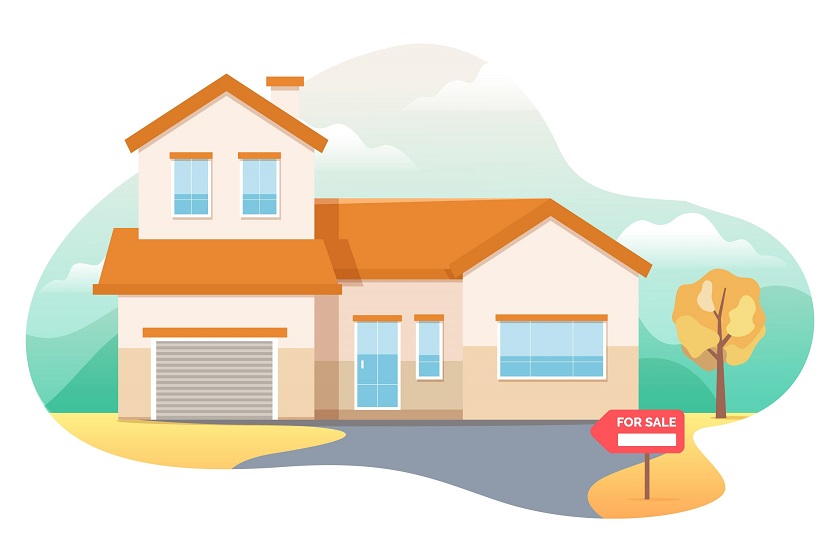Used homes generally come at a lower price than new homes, even with similar square footage. These properties are particularly attractive for buyers working within a budget or looking to invest in real estate without stretching their finances too thin.
Moreover, you can find many used homes in ready-to-move condition, saving you from the hassle of buying and installing necessary interiors.
However, before putting your money into real estate, you should always do your homework. Wondering what factors to consider when buying a used home?
Read on:
1. Roof
You must carefully inspect the roof when buying a used home, especially if the property is located in a city like Pittsburgh. Given the varied weather conditions of the city, the roof serves as the first line of defense against the elements.
Moreover, Pittsburgh’s proximity to the Great Lakes contributes to higher humidity and moisture exposure levels, making a sound roof even more crucial.
After a close inspection, problems like missing or broken shingles, sagging spots, and water stains on the ceiling become apparent. Identifying these issues before purchasing allows you to factor potential repair costs into your budget and negotiate with the seller.
If the seller is responsible for repairing the roof, we suggest hiring professionals from Resnick Roofing.
2. Appliances
Appliances are among the most costly components of a house. If they are outdated or malfunctioning, you may need to allocate funds for repairs or replacements shortly after moving in. This may have a substantial bearing on your finances.
Therefore, to be on the safe side, check the exteriors, handles, and control panels for all the appliances. Look for signs of frost buildup or water leakage in refrigerators and freezers.
Examine the shelves, drawers, and compartments to see if they are intact and functioning properly. For ovens and microwaves, look for signs of residue or staining.
If you have any doubts about the performance of appliances, reach out to a professional technician. They can identify underlying issues that might not be immediately visible and provide a more accurate assessment of the appliances’ condition.
That way, you will be able to make a more informed decision.
3. Size And Layout
Your property’s size is a major determinant of how much outdoor space you will have. It could impact activities like gardening, organizing gatherings, or even providing a secure area for kids and pets to run about.
On the other hand, the layout of the interior spaces influences the day-to-day functionality of your home.
Different people may have different layout preferences. Some people might like a layout that makes it easy for family members to talk to one another and spend time together in the kitchen, the dining room, and the living room.
Others may like to live a more private life. Hence, they would prefer a layout that gives every family member their respective space.
When deciding on a house’s square footage and design, considering your current and future needs is important.
If your family grows, would it require more space for bedrooms or offices? How flexible is the property’s layout to your favorite furniture configurations and other aesthetics?
True, certain aspects of property size and layout could be modified through renovations. But these changes often involve time and investment.
4. Location
We cannot overstate the significance of location when hunting for a used home. Proximity to schools, workplaces, parks, shopping centers, medical facilities, and public transportation affects your quality of life.
In other words, a convenient location can save you valuable time and reduce the stress associated with commutes and everyday errands.
Safety is another crucial aspect closely linked to location. Choosing a neighborhood with a low crime rate and a sense of security can provide peace of mind for you and your family. To get a feel for the neighborhood’s safety, it is best to visit at different times of the day.
Pay attention to the overall atmosphere and visibility of the area. Check out the local news sources if you cannot physically explore the location. They often report on crime incidents in the area, giving you an idea of recent criminal activity.
Besides, the location often defines the kind of life you will be living. For example, buying a used home in urban areas might offer abundant entertainment and dining options. But they may come with higher noise levels.
On the other hand, suburban neighborhoods provide a quieter environment but with limited access to certain amenities.
5. Renovation History
The property’s renovation history is the documentation of any previous remodeling projects. It demonstrates the transformation of the house, from little tweaks to major changes.
While well-executed renovations can boost a home’s resale value and aesthetic appeal, poor work can lead to future headaches and additional costs.
Buyers will have a better idea of the property’s overall condition and whether or not the renovations were done following their tastes by closely examining the property’s renovation history.
You may get a complete picture of what work has been done on a property by looking at the property records and permits issued by the local building authorities. These documents often contain information about the different kinds of renovations, the dates of the work, and the contractors.
However, the official records of certain older properties may not provide a thorough account of all renovations. It is because laws and rules about construction have changed over time.
Older renovations may not have required the same amount of documentation as those completed today. In that case, hiring an experienced contractor is your best bet. Among other things, these professionals can shed light on things like quality of work and hidden issues.
Conclusion
Over time, the costs of construction materials have skyrocketed. Therefore, more and more people are turning to used homes instead of new ones.
But this does not mean you should try to close the deal haphazardly. If you want to live the best lifestyle and maximize the ROI on your property, consider the above-listed factors before purchasing a used home.
